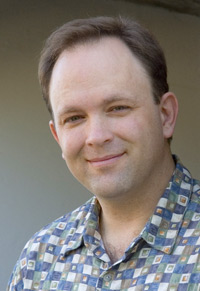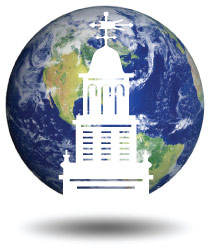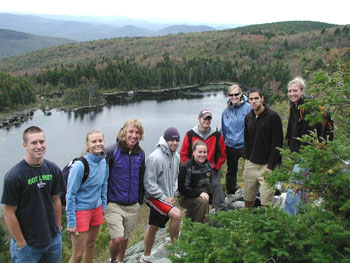
Energizing Students, College Community as Environmental Stewards
By Dave Sauerwein
Whenever we make major decisions at Colby-Sawyer College, we ask ourselves, “How will our students benefit?” In recent years, we have approached our environmental concerns in the same way. We are making decisions that benefit our students by reducing the college's carbon footprint and changing the way the institution and our community members interact with the environment.
In August of 2007, Colby-Sawyer became a charter signatory member of the American College and University Presidents Climate Commitment - a group of colleges committed to environmental sustainability. The organization provides a framework and impetus for reducing carbon emissions that are related to campus activities. Colby-Sawyer President Tom Galligan's signature provided the institutional support that has brought energy and purpose to the many environmental conservation efforts underway on campus.
Since 2007, the college has created a Sustainability Committee, led by President Galligan, which is one of places where ideas and plans develop and influence the campus in substantive ways. The changes are on-going at Colby-Sawyer – some easier than others. The dining hall is now tray-less, which has reduced food waste and eliminated the need to wash the trays. When students check into residence halls, each student receives a high-efficiency light bulb for their room. Old windows in nearly every office and residence hall have been replaced with energy-efficient models, reducing heat loss and conserving energy resources.

Students' Successes
Some of our greatest successes began with students' efforts to create a baseline from which to measure the college's impact on the environment. In 2006, a group of Environmental Studies students established Green ROUTES, a year-long project that included a comprehensive audit of the college's activities that established baselines for the use of carbon-based fuels on campus and recommended ways to reduce the college's carbon footprint. In the 2008-2009 academic year, another group of students continued the Green ROUTES project by measuring the college's progress toward its environmental goals and provided an updated set of recommendations for continuing the college's movement toward sustainability.
Additionally, the Student Government Association has co-sponsored several “Lights Out” nights on campus, two in cooperation with the town of New London. Leftover food in the dining hall is now collected and used for farm animals in the “Chow for Sows” bins.
A new student club formed on campus in 2007-2008 – Students for a Greener Campus – to lead other student-driven conservation efforts and promote sustainable practices on campus. The Class of 2009 also established a Green Fund as part of their senior gift to the college to support other environmental initiatives.
Of course, the college's academic programs in the Natural Sciences and Environmental Studies Departments support these campus-wide environmental efforts as well as their own curricular initiatives through projects, senior Capstones and internships. For their third-year projects, for example, teams of Environmental Studies students work cooperatively with municipalities, organizations and community members to study and address local environmental issues.

Economic Incentives
Economic pressures have also provided further opportunities and incentives for the college to reduce its environmental impact. A pilot program to go paperless is now underway in the Student Development offices, with the potential to save time, money and trees. By maintaining electronic rather than paper files, we are making information more easily accessible and transmittable.
The Human Resources office is exploring the feasibility of telecommuting for some employees whose responsibilities allow for flexibility. This could be yet another creative way for the college to reduce its costs while retaining our high level of service to our students.
The college is also working with local community officials and residents to bring about positive changes in the environment. As dean of students, I now serve as the liaison between the college's sustainability efforts and those of the local New London Energy Council.
Projects on the horizon include a wildflower initiative, in which land that is currently maintained by mowing on campus will be converted to a wildflower garden, thus lowering carbon emissions and reducing maintenance costs. The council is gathering information about the possibility of working together on a wind turbine project. This organization also sponsors a student intern to support its work and gain valuable experience in the practical matters of energy conservation.
Extending our Mission
At Colby-Sawyer College, our primary mission of educating our students has extended naturally into the arena of environmental conservation and stewardship. Through our college-wide efforts to move toward environmental sustainability on campus, our students are learning firsthand to become caring and responsible citizens who are actively engaged in changing their community for the better.
In the process, they are gaining experience in setting and working toward ambitious goals and serving as leaders and team members. As environmental issues will likely loom large in their futures, our students will know that finding solutions to the world's problems begins one person, one group, one community at a time.
Dave Sauerwein is the vice president for Student Development and dean of students at Colby-Sawyer College.


